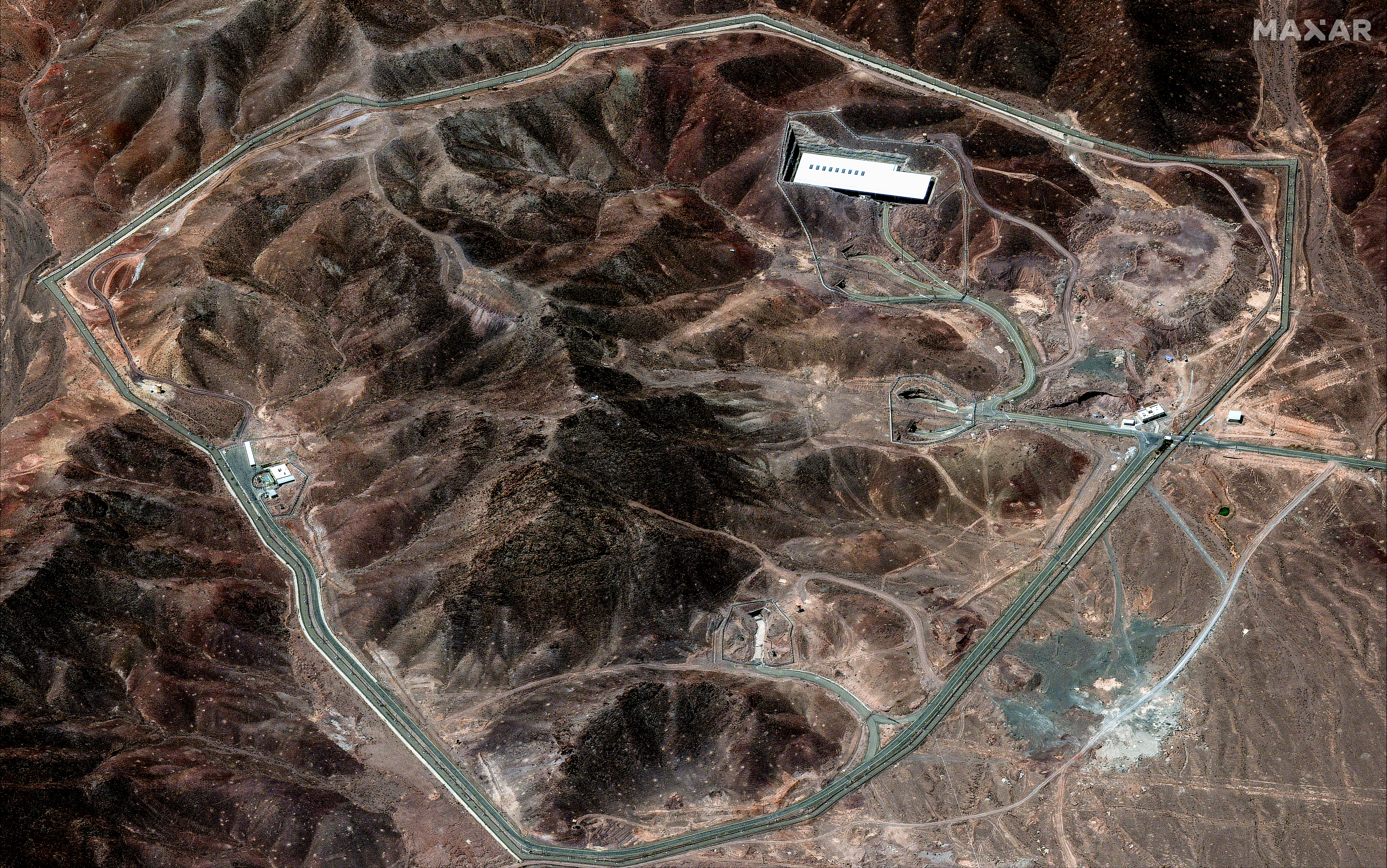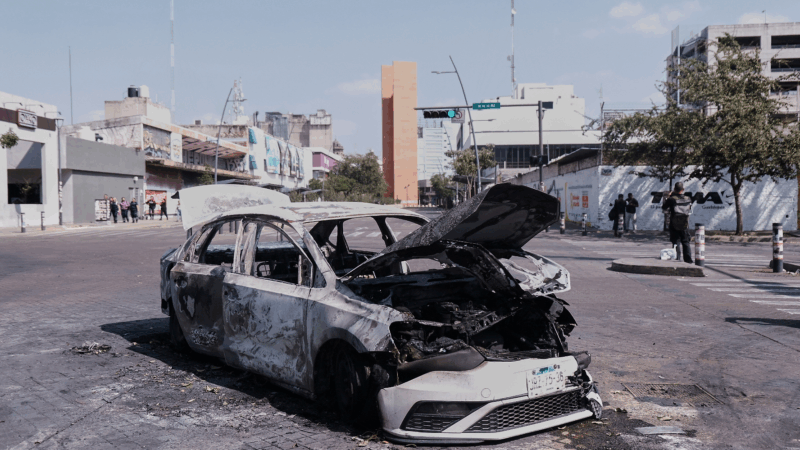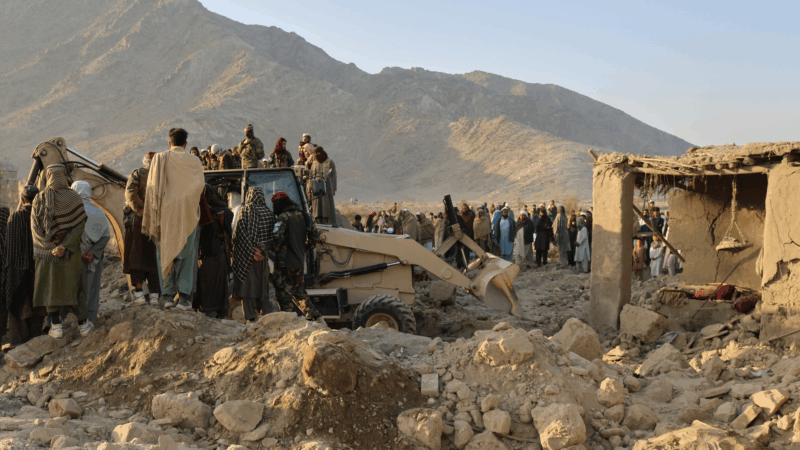If a U.S. ‘bunker buster’ hits a nuclear site, what might get released into the air?
If the U.S. does drop a powerful “bunker buster” bomb on a suspected underground nuclear weapons site in Iran, experts in radiation hazards see little risk of widespread contamination.
The site in question, Iran’s mysterious Fordow Fuel Enrichment Plant, is built into a mountainside and seems to be in the business of processing uranium isotopes. That means it would mostly be working with uranium in the form of a gas called uranium hexafluoride.
“It’s a big, heavy gas molecule,” says Emily Caffrey, a health physics expert at the University of Alabama at Birmingham, who explains that because this gas molecule is so heavy, “it’s likely not going to travel super-far.”
Any contamination from an attack would remain fairly localized to the site, she says.
While it’s hard to estimate the risks given that the exact type and quantity of the material at the site aren’t publicly known, she says, an environmental release likely wouldn’t present a problem “for anybody that’s not in the immediate area.”
Edwin Lyman, director of nuclear power safety at the Union of Concerned Scientists in Washington, D.C., adds that the two major kinds of uranium isotopes found at this type of facility “are at the low end of hazard with regard to radioactive materials.”
“So there’s not a significant, dire health threat if those materials got released to the environment,” he says. “It would probably lead, at most, to a relatively low level of contamination — not zero — but probably fairly close to the site.”
One concern is that uranium hexafluoride gas can react with water in the air to form hydrofluoric acid. “That is an acutely hazardous material that can harm or kill people,” says Lyman.
But in this case, given that the site is in underground caverns “and the bunker busters are designed to collapse the mountain above it,” he says, “any kind of environmental release would be relatively low since it would be essentially inhibited by this mass of rock that’s rained down on it.”
Rafael Mariano Grossi, the director-general of the International Atomic Energy Agency, has said that the agency has been monitoring the effects of strikes on Iran’s facilities.
One attack damaged the aboveground portion of the Natanz Fuel Enrichment Plant, he recently reported, but the “level of radioactivity outside the Natanz site has remained unchanged and at normal levels, indicating no external radiological impact to the population or the environment from this event.”
Inside the site, however, he said there was “both radiological and chemical contamination,” with the main concern being the chemical toxicity of uranium hexafluoride and the compounds generated when it made contact with water.
The main radiation danger there would come from inhaling or ingesting uranium, he said, but “this risk can be effectively managed with appropriate protective measures, such as using respiratory protection devices while inside the affected facilities.”
Mexican army kills leader of Jalisco New Generation Cartel, official says
The Mexican army killed the leader of the powerful Jalisco New Generation Cartel, Nemesio Rubén Oseguera Cervantes, "El Mencho," in an operation Sunday, a federal official said.
Ukraine’s combat amputees cling to hope as a weapon of war
Along with a growing number of war-wounded amputees, Mykhailo Varvarych and Iryna Botvynska are navigating an altered destiny after Varvarych lost both his legs during the Russian invasion.
University students hold new protests in Iran around memorials for those killed
Iran's state news agency said students protested at five universities in the capital, Tehran, and one in the city of Mashhad on Sunday.
Pakistan claims to have killed at least 70 militants in strikes along Afghan border
Pakistan's military killed at least 70 militants in strikes along the border with Afghanistan early Sunday, the deputy interior minister said.
Team USA faces tough Canadian squad in Olympic gold medal hockey game
In the first Olympics with stars of the NHL competing in over a decade, a talent-packed Team USA faces a tough test against Canada.
PHOTOS: Your car has a lot to say about who you are
Photographer Martin Roemer visited 22 countries — from the U.S. to Senegal to India — to show how our identities are connected to our mode of transportation.






